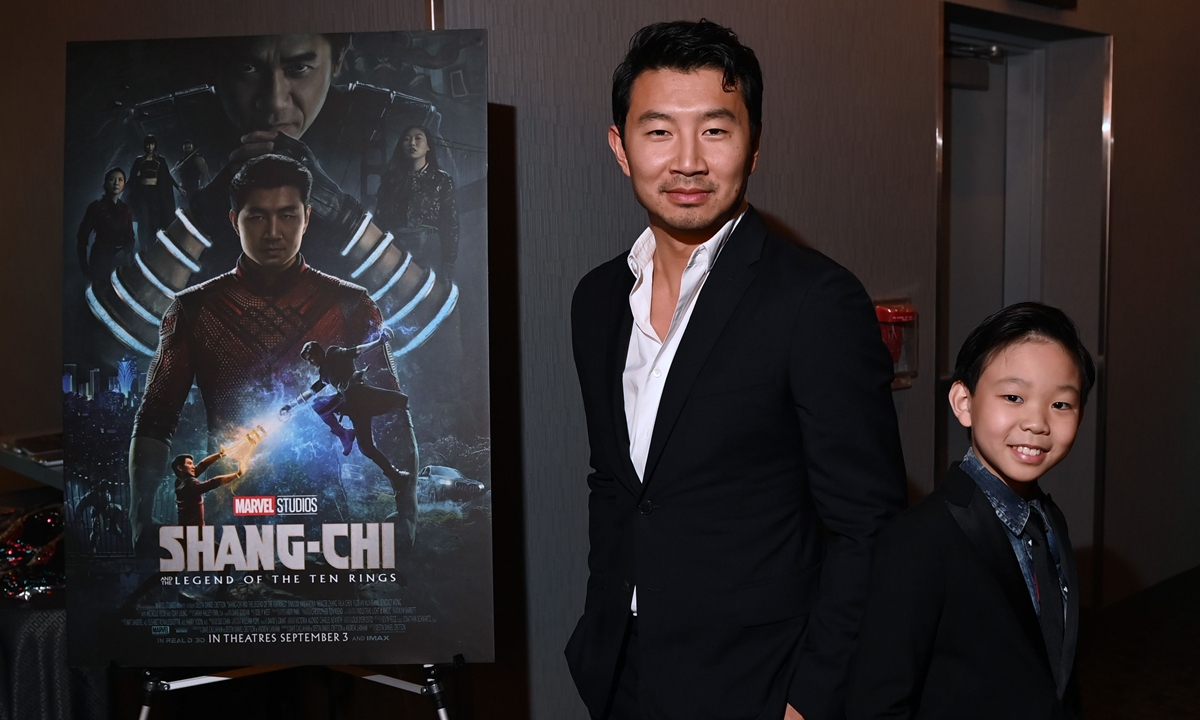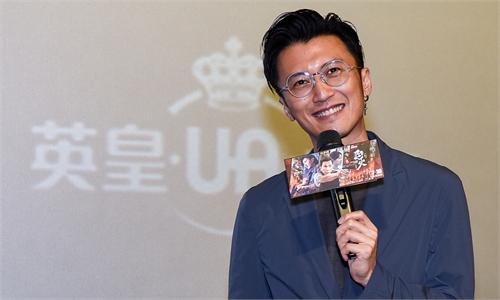ARTS / FILM
Marvel’s first Asian superhero fails to win Chinese audiences’ hearts
Falling short

Simu Liu and Jayden Zhang, who respectively play the older and younger versions of Shang-Chi in Shang-Chi and the Legend of the Ten Rings, attend the premiere of the film. Photo: AFP
It seems it must be the only right move that Disney made: Asian superhero movie Shang-Chi and the Legend of the Ten Rings was not released in the Chinese mainland yet, because even if mainland audiences had been given the opportunity to see it in cinemas, it very likely would have received the same reception as Disney's Mulan, a 2020 work aimed at Chinese audiences that met its Waterloo in the country.
Shang-Chi is full of Chinese cultural elements, the most highlighted part is that lead character Xu Shang-Chi, played by Canadian actor Simu Liu, saves people through Chinese martial arts, or kung fu. But no amount of kung fu can save a movie containing Western stereotypes about Chinese culture and a character originating from a racist background when it was originally created for the comics.
That character is Shang-Chi's father, who was called The Mandarin in the original comic, while the movie producers gave him a new name "Xu Wenwu."
The character is played by actor Tony Leung from Hong Kong.
The Mandarin's origins are associated with an early-20th century novel featuring Fu Manchu, a representative of the "Yellow Peril" in the West. This connection sparked controversy in 2019 when Marvel first announced the project.
The film tries its best to distance the character played by Leung from Fu by having Wenwu explain to his son that he is not "The Mandarin" and that the name was used by someone pretending to be him.
Despite this, the movie is still based on the original comic and the image of the character in the comic looks nearly the same as the traditional image of Fu in the West that stands as an insult to Chinese people, so the explanation in the movie only serves to further highlight Marvel's guilty conscience and cannot erase the memories of the controversial character's origins from Chinese audiences' minds, even those who are fans of Marvel.
Shang-Chi and the Legend of the Ten Rings finally launched on Disney's streaming platform over two months after its cinema release in North America, meaning the film is sure to reach a broader audience around the world.
Sadly, the many Chinese elements in the movie are likely to misguide these overseas audiences and might give them wrong impressions of Chinese culture, similar to the problems seen in Mulan.
The movie is like Chinese food in the US. It suits the tastes of US audiences, but it's not really Chinese.
For example, the film included several types of fantastical creatures from Chinese mythology and showed them living together, but actually these creatures would have fought each other in a fierce battle if they ever ran across one another.
Even the kung fu scenes fall short. The action choreographers should have included more fight scenes in order to show the various styles of kung fu.
Some Chinese who have watched the film in places such as Singapore and the US have already uploaded reviews on Chinese media review platform Douban, where it currently has a low 6.3/10.
"The story of the film takes too many liberties with Chinese culture. Hollywood added their own understanding of Chinese culture to the movie but that did not please Chinese audiences. Why did they not find more creative talents from China in Hollywood? That would be a good way to capture the hearts of Chinese audiences," Chinese film critics commented after Mulan had been released in the mainland. Similar reviews appeared after Shang-Chi was launched.
If Western filmmakers want to produce movies about Chinese culture that will become truly popular in China, they should do more research on the subject they are trying to depict.




